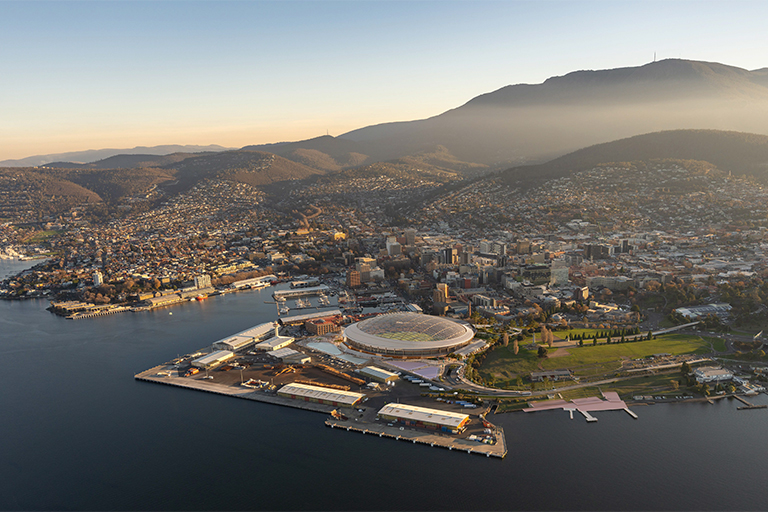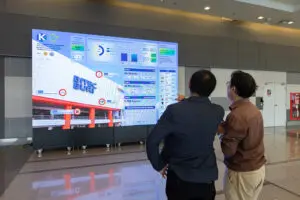The announcement of potential new laws from the state’s Premier comes after the Tasmanian Planning Commission (TPC) released its draft integrated assessment report of the stadium, which raised a variety of issues with the development. Released on March 31, the report is part of the established process for progressing projects of state significance (POSS).
“It has become clear over the last week that the current process is undermining certainty and confidence in the future of the [Macquarie Point] precinct and the Tasmania Devils AFL club, impacting construction, recruitment and economic prospects,” said Tasmania’s Premier Jeremy Rockliff.
The development of the stadium was part of the deal for Tasmania to have its own AFL team. However, the stadium will also offer business events space.
“We cannot afford not to deliver this project,” said Rockliff.
“And we cannot afford delays.
“This has been one of the most scrutinised projects in the state’s history.
“It will drive economic growth, deliver jobs and, of course, mean Tasmania gets the teams that are rightfully ours.
“Every member of the parliament will have their say on this project – just as they would have through the POSS.
“It’s time we got on building it.”
The Tasmanian Planning Commission’s draft report found that the costs of building the stadium would be twice its benefits, in addition to raising concerns about the size of the stadium, the constraints of the site and the disruption the operational venue could cause to existing infrastructure in Hobart.
The draft integrated assessment report followed the release of an independent review of the stadium project by economist Nicholas Gruen in January, which was also critical of the development. The latest report by the planning commission references Gruen’s report throughout, sometimes in comparison to the planning commission’s own findings and sometimes referencing figures from Gruen’s assessment.
In the same statement announcing the new legislation headed to parliament to progress the stadium, Tasmania’s business, industry and resources minister, Eric Abetz, seemed to suggest the integrated assessment report had been significantly influenced by the Gruen review.
“It is the government’s view that Dr Gruen’s report has been tainted by an apprehension of bias, undermining the government’s confidence in the integrated assessment report,” said Abetz.
“At the very least, there is a significant likelihood the concerns raised will lead to lengthy legal challenges regarding any final recommendation and significantly delay the final decision by the minister to approve the stadium.
“To be clear: we are very supportive of the TPC and the important work it has carried out.
“We will continue to work through the report – and whatever public feedback there is on it.
“We will keep extracting what we can to inform good and proper planning decisions around the stadium, to make the precinct the best it possibly can be.”
The Macquarie Point Development Corporation – the statutory body responsible for developing the site selected for the stadium – also criticised the draft integrated assessment report after receiving legal advice, saying it largely ignored the benefits of the project and that the project scope had been “unreasonably extended”, amongst other issues.
Within the assessment report, the focus on “key challenges, concerns and potential problems” is flagged as the purpose of the report and that the report should be read with this context.
While Tasmania’s Labor Party has indicated it will support the stadium, the Greens have indicated they oppose the latest move by the sitting Liberal Government to legislate a different path for the stadium’s approval. Meanwhile the Independent Meg Webb has also issued a strongly worded disapproval of the proposed legislation.
“This is a new low for our state – a minority government behaving with utter disregard for good governance and accountable decision-making,” Webb said in a statement.
“Parliament has a responsibility to make sound and evidence-based decisions in the public interest.
“Yet by nobbling the independent TPC assessment process, Premier Rockliff is deliberately preventing comprehensive evidence from being available to inform any parliamentary debate.”




















